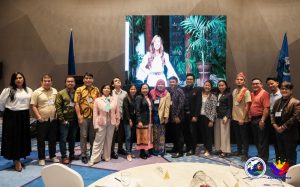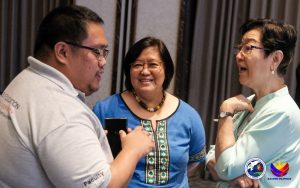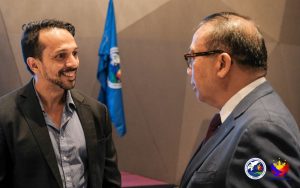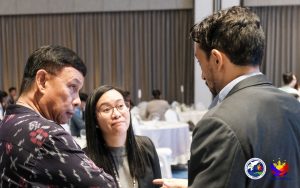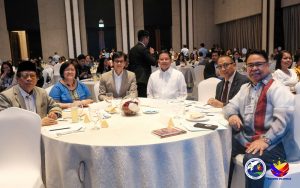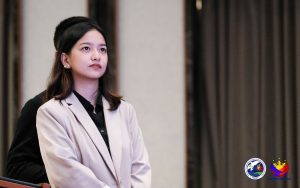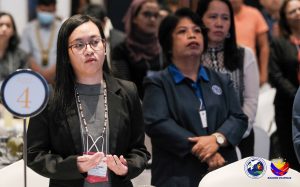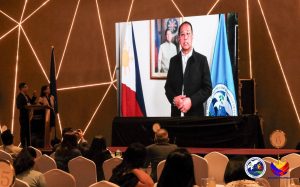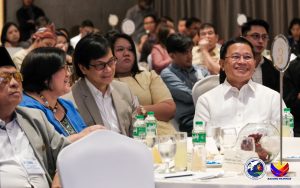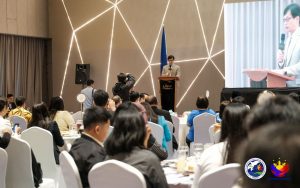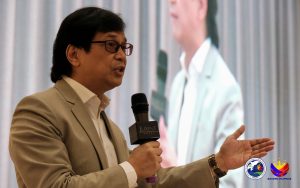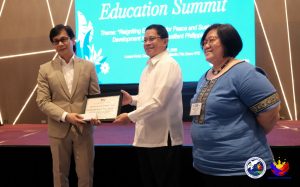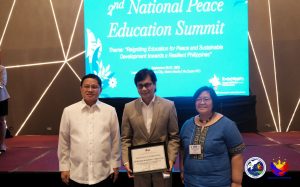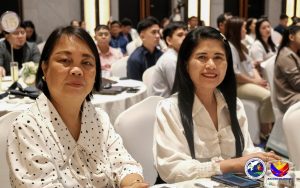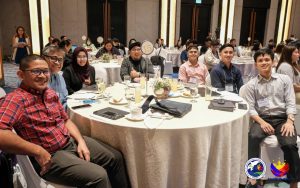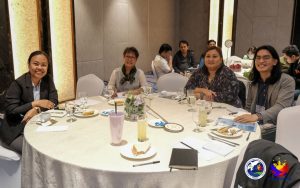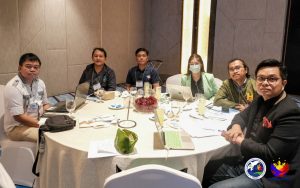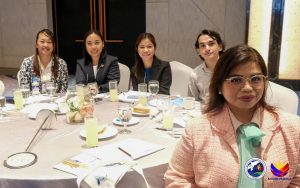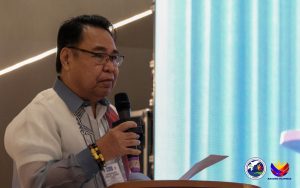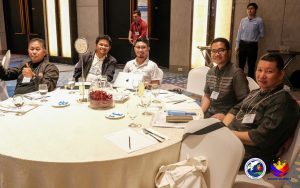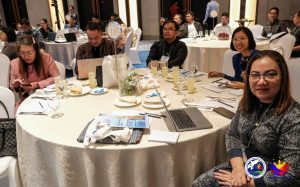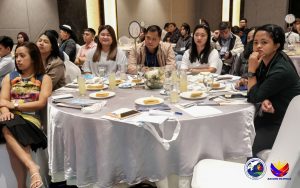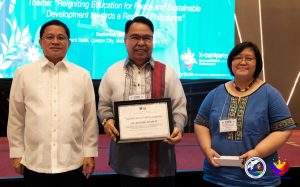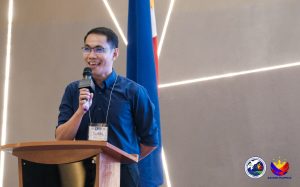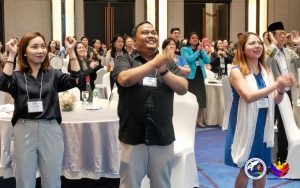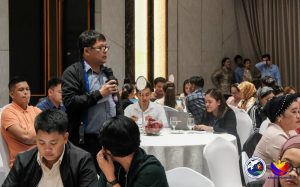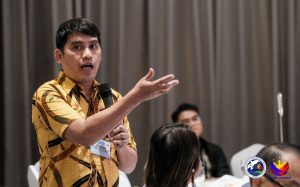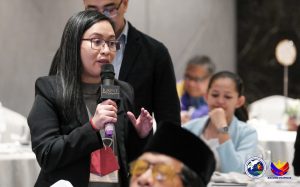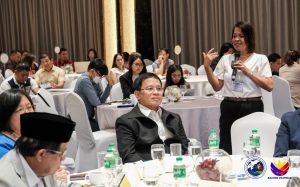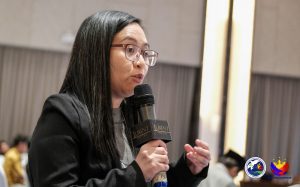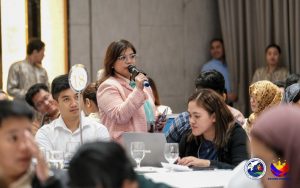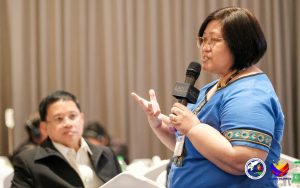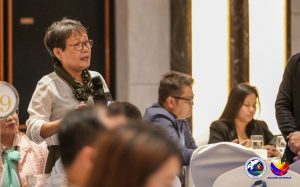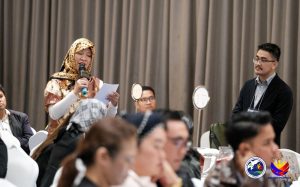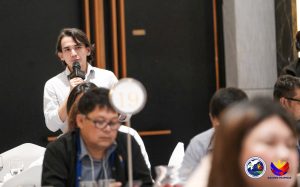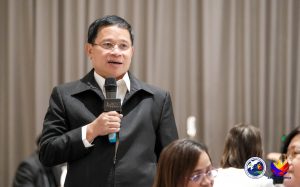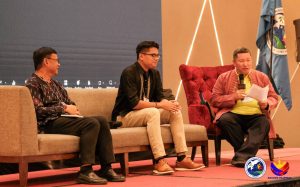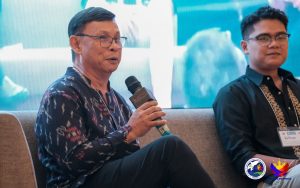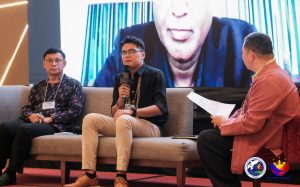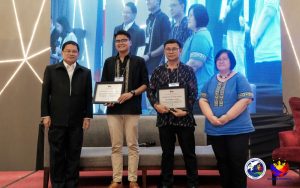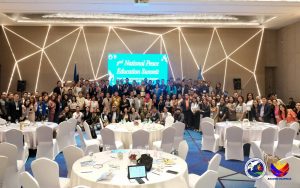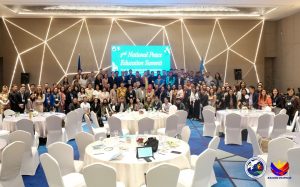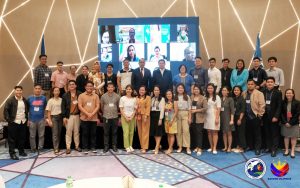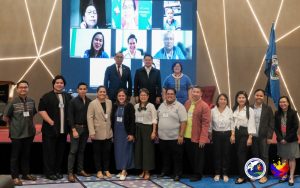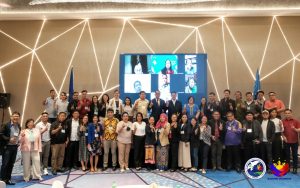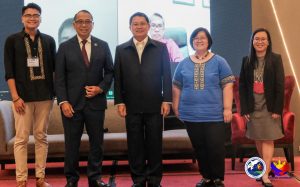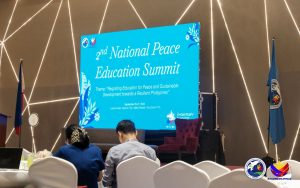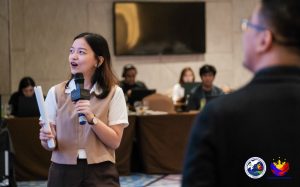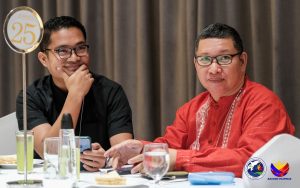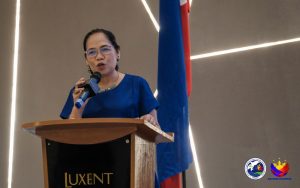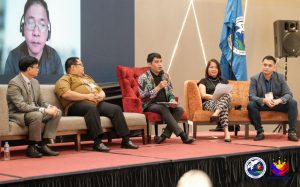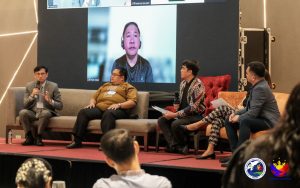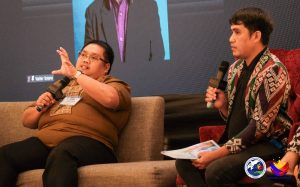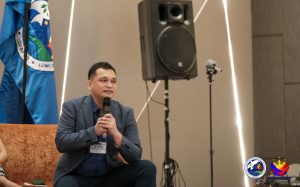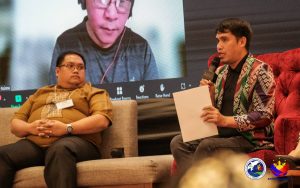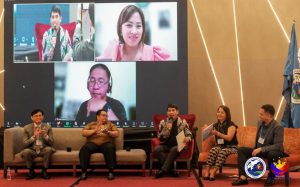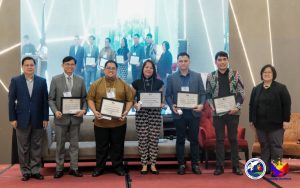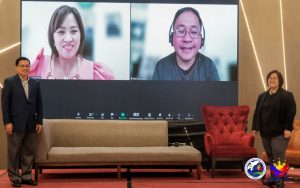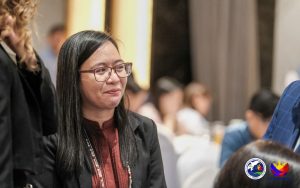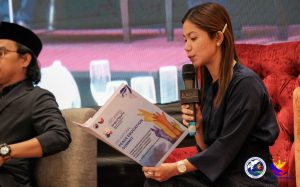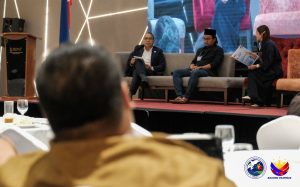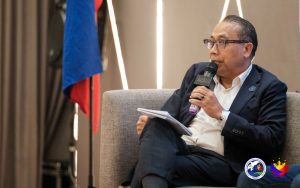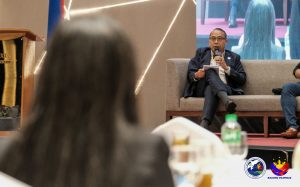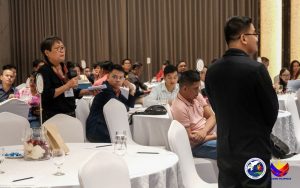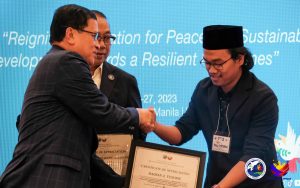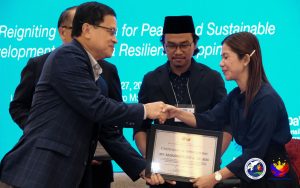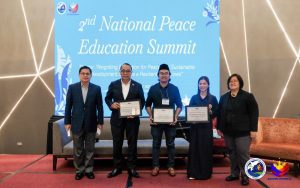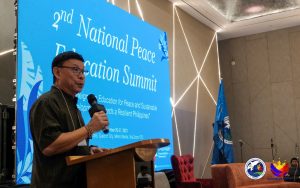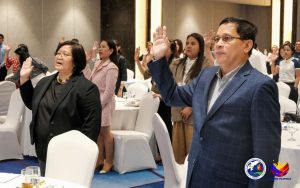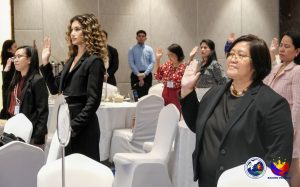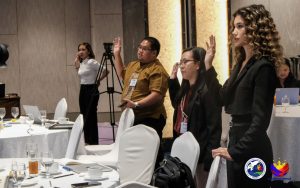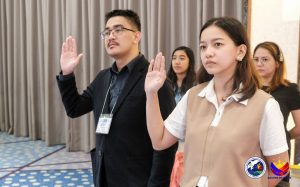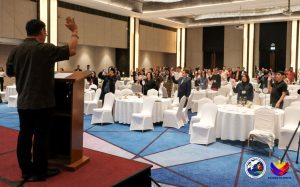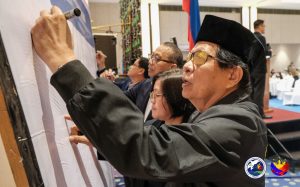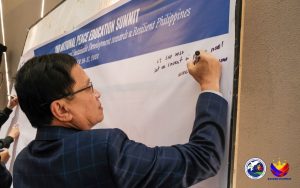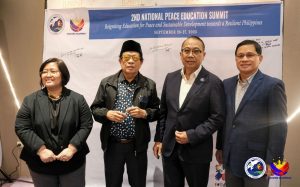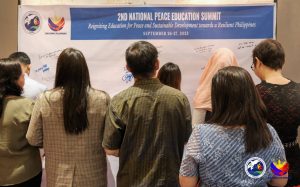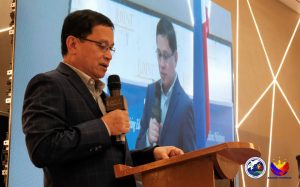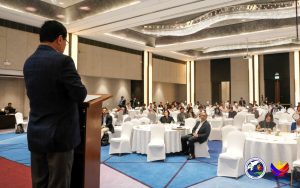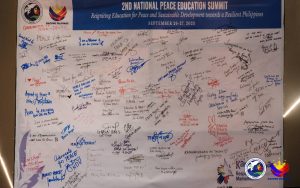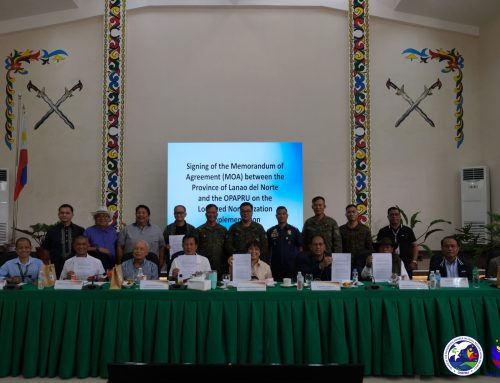QUEZON CITY, 27 September 2023 – The Department of the Interior and Local Government (DILG), Commission on Higher Education (CHED), and the Department of Education (DEPED) expressed their full support in mainstreaming peace education in barangays, and in basic and higher learning institutions during the 2nd National Peace Education Summit held in this city from September 26 to 27, 2023.
“We will make sure that peace education will be mandatory in all barangays. I commit to that on this day,” DILG said Sec. Benjamin C. Abalos, Jr. who threw his agency’s support in strengthening the teaching of peace education at the community level.
Starting at the grassroots level
“[L]et’s have a program for all the barangays to have a seminar for all of our SKs (Sangguniang Kabataan) after this election so that this program of peace education will [start at] the grassroots [level],” he added.
Abalos also announced that the DILG will be including peace education as one of the criteria for local government units to be awarded a Seal of Good Local Governance (SGLG).
The SGLG is an award-giving program of the DILG that recognizes the outstanding performance of LGUs in upholding transparency and accountability in governance.
In his message delivered by CHED Commissioner Dr. Ronald L. Adama, CHED Sec. J. Prospero E. De Vera underscored the important role that higher education institutions have in building a more peaceful world.
“Our institutions of higher learning have a pivotal role to play in shaping the future of our society and by embracing peace education, we can pave the way for a more harmonious and just world,” De Vera said.
He also provided insights on how to mainstream peace education in the higher education sector, noting that by, “engaging students in meaningful discussions and experiential learning opportunities. We should also promote peace and conflict-resolution research [and] creating a knowledge-based system that informs policies and practices worldwide.”
According to De Vera, the CHED has issued memoranda supporting the institutionalization of peace education in colleges and universities.
These include CHED Memorandum Order (CMO) No. 1, s. 2019 which calls for the integration of peace education/studies into relevant higher education curricula, and CMO No. 42, s. 2021 which recommended guiding principles and practices on peace education for higher education institutions.
MATATAG curriculum
In a statement, Vice President and DepEd Sec. Sara Z. Duterte extended her support to the OPAPRU, which is taking the lead in mainstreaming peace education across the country, for its“consistent efforts in promoting peace and unity across the country.”
Duterte cited the significance of the summit, saying, “The 2nd National Peace Education Summit highlights the importance of reigniting education for peace and sustainable development towards a resilient Philippines. The event contributes to establishing a solid foundation for the future, bolstering national security, and moulding the minds of our youth.”
“The recently launched MATATAG curriculum teaches students to support peace, assist their families and communities, and prioritize education and vocations,” the vice-president said.
Rowell S. Padernal, DepEd Senior Education Program Specialist, discussed the features of the agency’s MATATAG curriculum, which includes Strengthened Peace Education.
Padernal also cited subjects in the elementary level wherein there is a strong articulation of peace education approaches. These include Araling Panlipunan, Good Manners and Right Conduct, and Science.
As part of its efforts in promoting peace education, Padernal said the DepEd shall carry out the following initiatives: conduct a Consultative Conference on Peace Education; develop a Peace Education Roadmap and Program; and launch the National Peace Education Program before the year ends.
For his part, Presidential Peace Adviser Sec. Carlito G. Galvez, Jr., whose message was delivered by Senior Undersecretary Isidro L. Purisima, expressed his gratitude to peace education champions for participating in the annual summit.
“Your presence here for the past two days symbolizes your steadfast commitment to help in the national government’s efforts to guide our children and youth to become instruments of peace in our communities and beyond,” Galvez said.
He then called on peace education partners to strengthen their collaboration to ensure that peace education will be mainstreamed across the country’s education system, particularly in the basic and higher education sectors.
He said that the OPAPRU is working closely with leading academic institutions because “they will be crucial in the national government’s heightened efforts to realize its agenda of bringing peace, reconciliation and unity to all Filipinos.”
Galvez emphasized the value of peace education in nation-building, saying, “It is vital in creating open and conducive spaces that will generate important lessons on peace negotiations and mediation, conflict resolution, human fraternity, justice and unity.”
Galvez pointed out that peace education should go beyond the development of a curriculum, saying, “Our methods must aim to build specific competencies, values, and practices that can be effectively applied in our everyday life and transformation towards culture of peace and harmony. By doing this, the concepts that we teach can be utilized and maximize peace outcomes.”
“Therefore, institutionalizing peace education both in the formal and informal educational setting will require all peace stakeholders to work together in order to develop a creative, inclusive, and comprehensive strategy wherein no one should be left behind, especially the younger generation and most vulnerable – the women, the poor and indigenous peoples. Everybody must play an integral part in the peacebuilding process,” he said.
Best practices in peace education
The summit gathered representatives from national and Bangsamoro government agencies, higher education institutions, and peace education experts to share their best practices and generate relevant inputs to the draft Implementing Rules and Regulations (IRRs) of the proposed Executive Order on the Strengthening of the Institutionalization of Education for Peace and Sustainable Development in Basic and Higher Education and Other Learning Institutions.
NGAs who presented their peacebuilding efforts and programs aimed at supporting peace education included the DILG, CHED, DepED, TESDA and OPAPRU, The Bangsamoro agencies included the Ministry of Basic, Higher, and Technical Education and Ministry of Public Order and Safety.
In a panel discussion, representatives from the Institute for Peace and Development in Mindanao Office, United Nations Development Programme, and Pagdakit Alang sa Pag-amona sa Kalinaw, Inc. explained how genuine peace can trigger sustainable development in communities.
In a separate panel discussion, universities shared their teaching strategies, which are designed to make peace education more interactive and interesting to their students.
These universities included the Cavite State University, Bicol University, Siliman University, Bukidnon State University, Western Mindanao State University, and Mindanao State University – Iligan Institute of Technology.
Another panel discussion was participated in by the ASEAN Institute for Peace and Reconciliation, Ambassador Gusti Agung Wesaka Puja and Mindanao State University,
Raihan Yusoph shared lessons learned in establishing a peace institute. The session was moderated by Joy De Asis from the Mindanao State University – Tawi-Tawi.
Institutionalizing PeaceEd
Issued in 2006, Executive Order No. 570, entitled “Institutionalizing Peace Education in Basic Education and Teacher Education” jumpstarted the implementation of peace education activities in academic institutions throughout the country.
With the issuance of EO No. 570, the OPAPRU began implementing initiatives to mainstream peace education in the country’s education curriculum.
The signing of EO 158 in 2021 entitled “Strengthening the Policy Framework on Peace, Reconciliation and Unity and Reorganising the Government’s Administrative Structure for the Purpose,” put peace education at the core of OPAPRU’s peacebuilding strategies.
With its expanded mandate, the OPAPRU organized a Community of Practice (CoP) for peace education practitioners in November 2021, which became a platform for them to share knowledge and exchange experiences.
In June 2022, the OPAPRU spearheaded a Peace Education Community of Practice Planning Session in Davao City. It was participated in by representatives from 17 Higher Education Institutions (HEIs) from all over the country.
The OPAPRU also held the 1st National Peace Education Summit in September 2022 in Davao City. The summit was attended by over a hundred peace education champions in the country and resulted in the drafting of an Executive Order (EO) that sought to strengthen the mainstreaming of peace education and sustainable development in the basic and higher learning institutions.
The 2nd National Peace Education Summit aimed to present to participants the said approved EO, in order to gather inputs that will be used in drafting its IRR.
OPAPRU is hoping that the new EO, which had been vetted to concerned government and non government agencies, will be signed by the President soon. This will further accelerate the creation of a rich network of peace weavers and educators both nationwide and worldwide. ###
